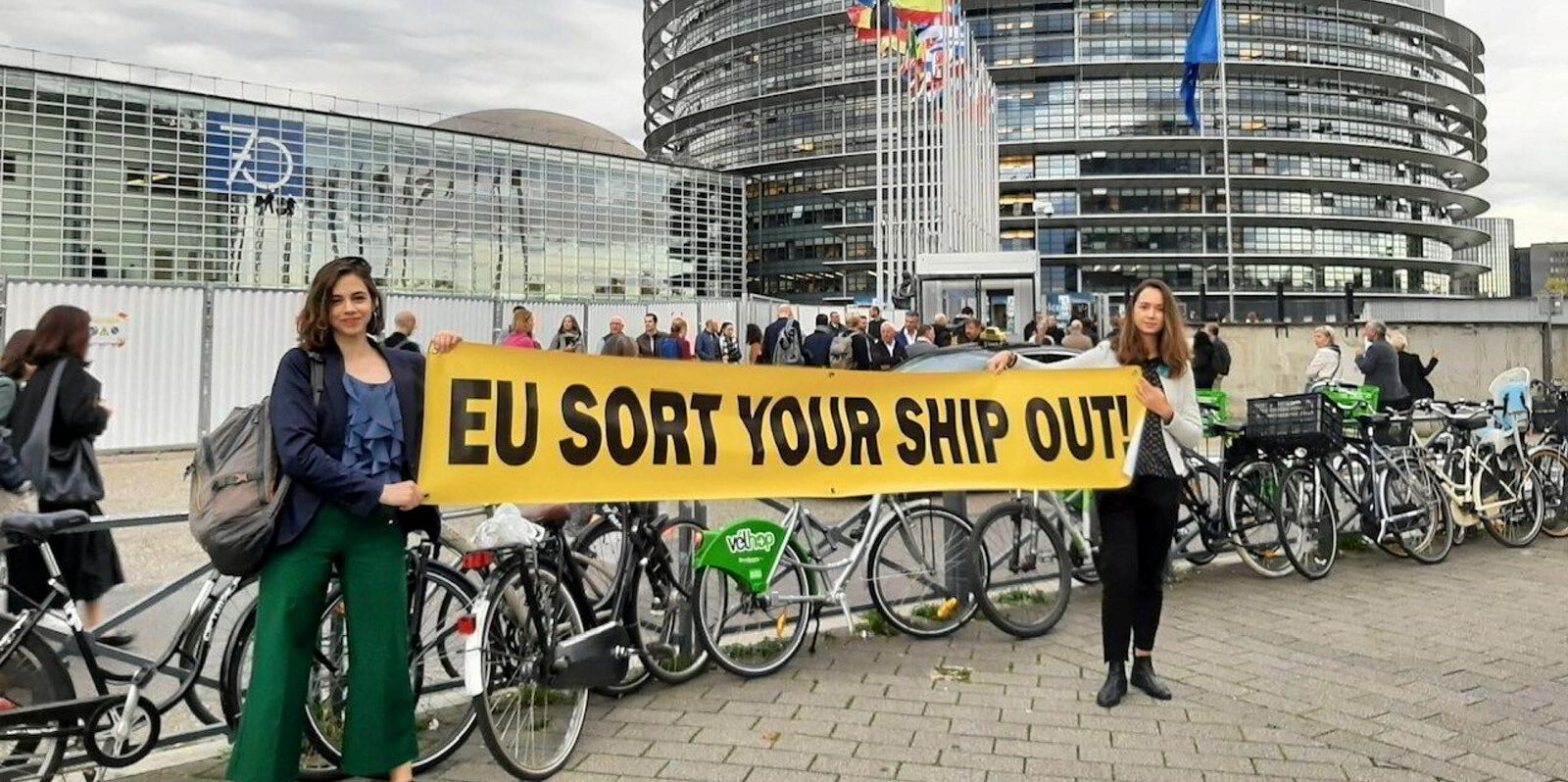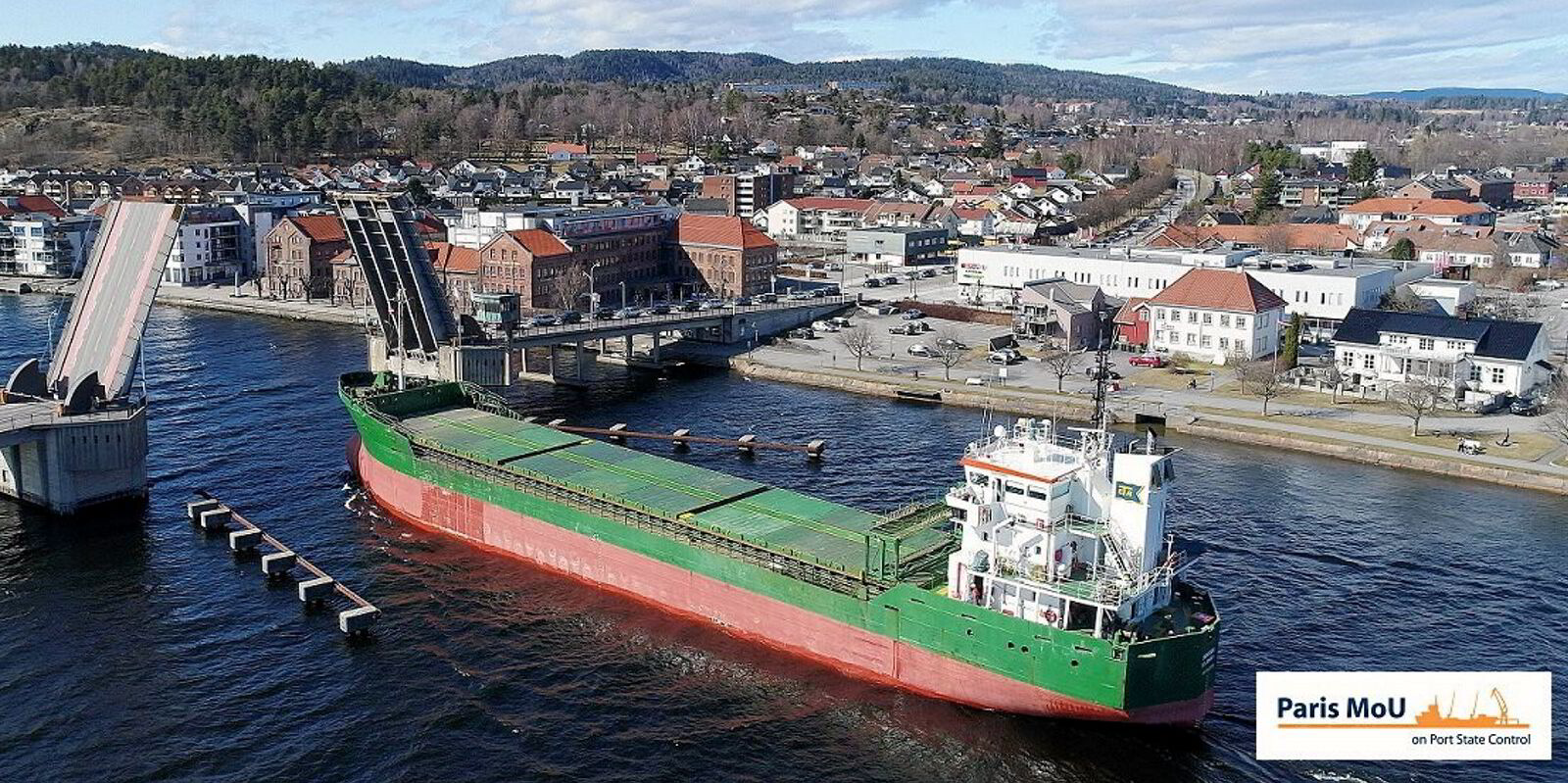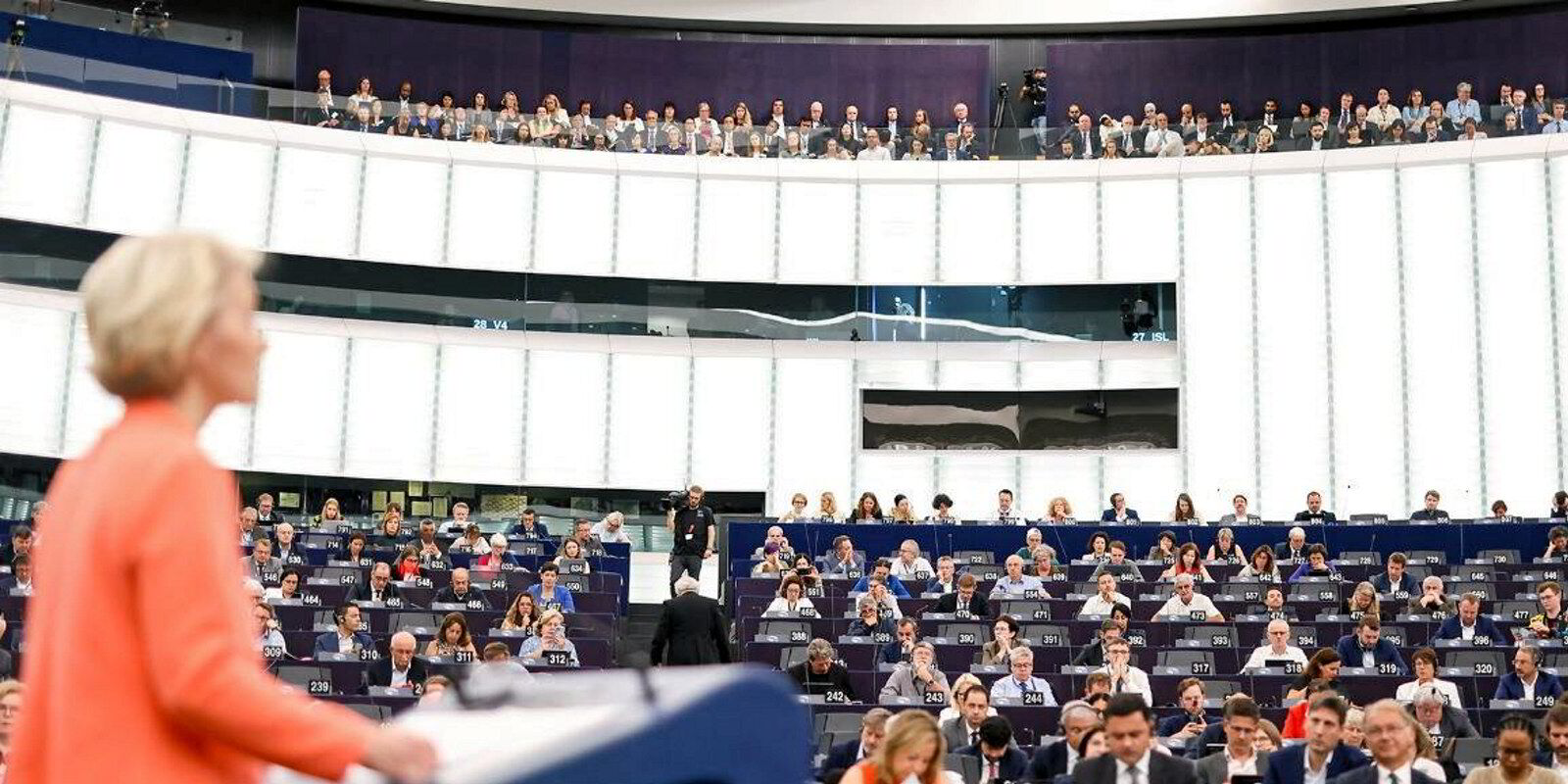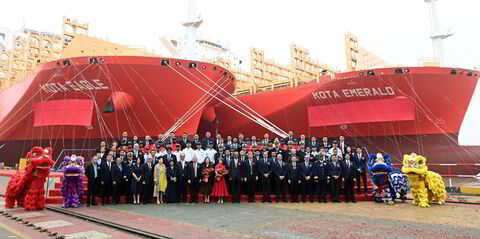When European Commission president Ursula von der Leyen stood before European Union lawmakers and successfully made the case for a second term, she struck a different tone on the Green Deal, her signature climate initiative that included regulations on shipping.
Some described her new language as watering down the Green Deal in a way that caves to the demands of industry and agriculture.
But, for others, it represented a shift from the language of regulation to the language of investment in the green fuels and technologies that will make the EU’s climate targets possible.

Sotiris Raptis, secretary general of the European Community Shipowners’ Associations (ECSA), told the Green Seas podcast he has seen the shift take place over the last year.
“We have seen a big change in the narrative of the policymakers in Brussels,” he said. “Not only in Brussels. The European government, the Commission in Brussels, the politicians, the members of the European Parliament — they’re all getting more aware of the fact that we need to become, as Europeans, more competitive.”
Von der Leyen’s re-election came after elections that saw a change in the political make-up of the European Parliament, including greater representation by far-right parties that were sceptical of the Green Deal.
The initiative has introduced prominent regulations for shipping, including the incorporation of the sector into the Emissions Trading System and the enactment of FuelEU Maritime, which establishes carbon-intensity limits on the energy consumed by vessels.
“I want to be clear. We will stay the course on our growth strategy and the goals that were set for 2030 and 2050,” she said of the climate efforts in her address to the European Parliament.
“Our focus will now be on implementation and investment to make it happen on the ground. And this is why I will put forward a new clean industrial deal in the first 100 days of the next mandate.”
That clean industrial deal will aim to channel investment in infrastructure and industry to help create markets for cleantech, she said.
Raptis said that focusing on investment and competitiveness will help achieve the EU’s targets.
“The EU has adopted probably the most ambitious climate package internationally,” he said. “We know now where we need to get: zero or net zero by 2050, with the first target down by at least 55% by 2030, but at the same time, we need to stay competitive.”
Raptis said the wake-up call for Brussels came from developments in the US.
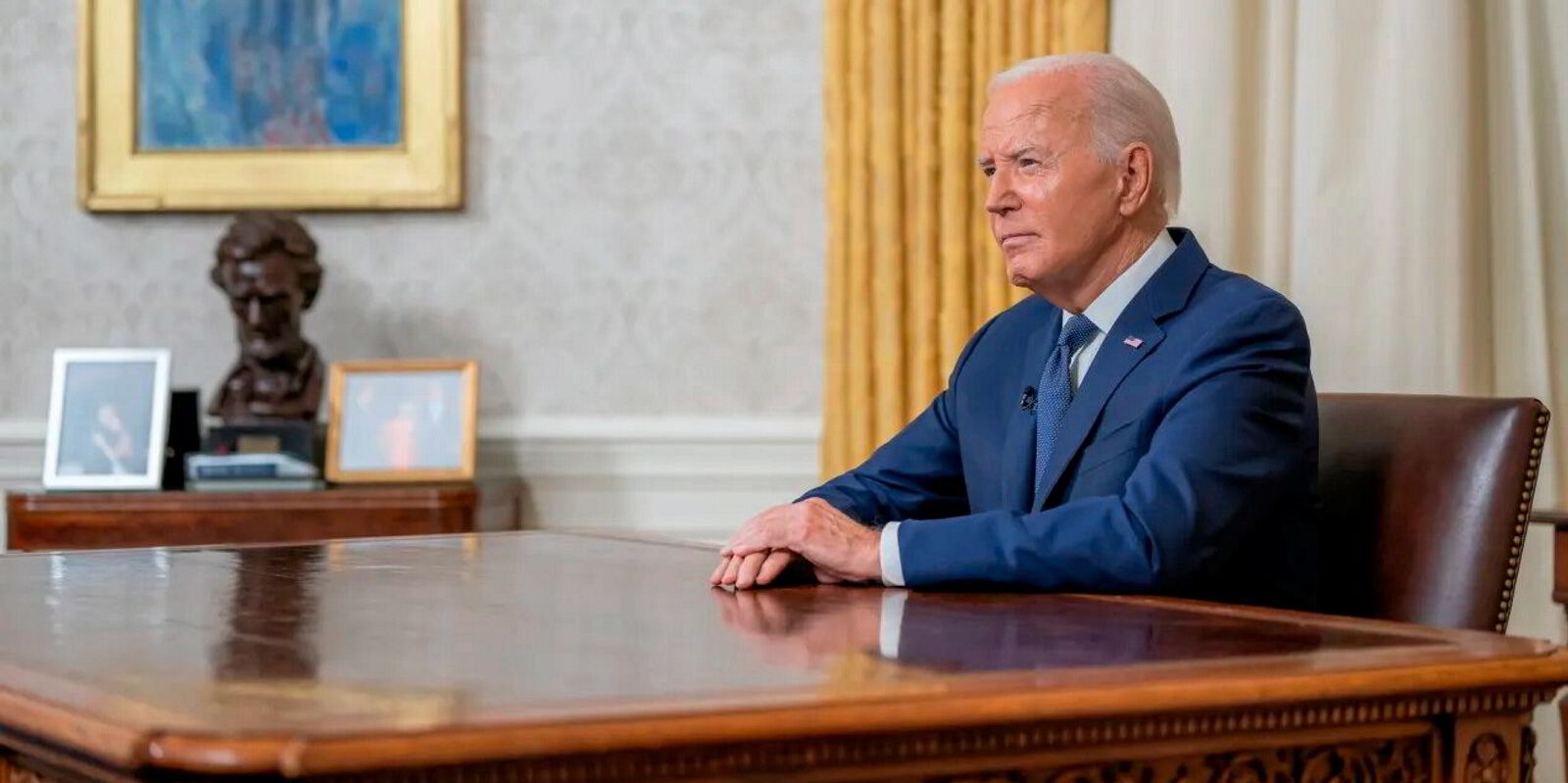
Overcoming deep divisions in Washington, the US Congress and President Joe Biden managed to pass the Inflation Reduction Act in 2022.
Despite its name — since increasing government spending is usually not seen as the way to reduce inflation — the law was loaded with investment in green energy.
The 2021 Bipartisan Infrastructure Law also allocated substantial funding for similar projects.
“As Europeans, we saw that the US administration has been supporting the uptake of cleantech and technology that can support the energy transition,” Raptis said.
“On the other hand, we’ve got the ambitious targets, but the concern here is that we’re losing out in competition against the US and against China.”
Since that wake-up call, the EU has implemented measures such as the Net Zero Industry Act to support key technologies.
So Raptis sees von der Leyen’s recent re-election speech — which repeatedly emphasised the term “investment” — as indicative of the evolving narrative.
The ECSA secretary general, whose organisation is made up of shipowners groups throughout Europe, said it is a shift in the right direction for Brussels.

“It’s pragmatic. It’s realistic. It doesn’t undermine the climate targets,” he said.
“In fact, this new approach is here to implement the climate targets and support the competitiveness of the industry — and also to … make the continent more secure.”
Looking forward, Raptis said he wants Brussels to be more realistic when it comes to the implementation of the emissions trading regime and FuelEU Maritime.
Among positive signs that officials are moving in that direction, he pointed to von der Leyen’s pledge to cut red tape and excessive reporting requirements.
As the regulations on shipping need to be extended beyond 2030, to move further towards the goal of net zero by 2050, he said von der Leyen has indicated a differentiated approach to various industries.
Brussels is aiming for 90% emissions cuts by 2040 across the EU economy, and Raptis said EU officials have signalled an openness to aligning with steps taken by the International Maritime Organization, which is discussing policy mechanisms after setting new decarbonisation targets a year ago.
The IMO’s targets envision 70% to 80% cuts by 2040.
“The [European] Commission took into consideration the IMO target for shipping of up to 80%, and that was a clear signal of trust and support for the IMO process,” Raptis said.
In von der Leyen’s next five-year term, he is expecting alignment of EU targets with the IMO.
“We will also push the commission to consider and align as much as possible the current regulations in place with what the IMO will come up with, we hope, quite soon in the next year,” he said.
While some environmental groups have bemoaned what they called watering down of the Green Deal, Seas at Risk interim shipping director Sian Prior said that it is still early days.
The good news is that the Green Deal is still on.
“Clearly, there’s been a move, a shift in terms of the politics, and that I think will have implications for the future, for climate [and] for industry generally, including shipping,” she said.
“From a positive perspective, at least from our perspective, the Green Deal is still alive and intact.”

Prior, who is also lead adviser at Clean Arctic Alliance, said the Green Deal also needs to recognise the role of the industry going forward and not leave some sectors behind.
“We’ve got to find ways forward that work for everybody — that gets that balance right — but we’ve got to decarbonise,” she said.

For Seas at Risk shipping policy officer Anais Rios, that also means seeing the role that industry can play in driving decarbonisation with technologies like wind propulsion.
“We’re talking about really high-tech things that can bring, it wouldn’t be crazy to say, 20% to 40% of propulsion for a vessel,” she said.
“And this is massive. This helps also in decarbonising the industry itself and reducing the cost of or the impact of having to switch to new fuels.”
Prior said that Seas at Risk, an organisation focused on ocean sustainability and shipping decarbonisation, is pleased that the EU is still committed to decarbonisation.
The regulations that the EU has already put in place now need to be implemented, she said, and Brussels needs to remain a leader as the IMO discusses its next steps on tackling the industry’s greenhouse gas emissions.
But the fact that the European Commission is still committed to the Green Deal does not mean there is nothing to worry about.
“The commitment to maintain the climate targets and the commitment to still have a Green Deal gives us hope that there won’t be sliding back, but it’s something that we’ll need to watch, and we’ll be watching closely, she said.
Read more
- Viewpoint: Scrubbers don’t match up to shipping’s air pollution rules
- Navigator and Bumi Armada plot fleet of vessels for carbon shipping project with Uniper
- Tanker owners face billions in extra costs from European Union fuel regulations
- Ship banned from Europe after third failed safety inspection in two years
- Von der Leyen opens second term with pledge for European ‘Oceans Pact’
- Gram Car Carriers and K-Line team up on biofuel drive

